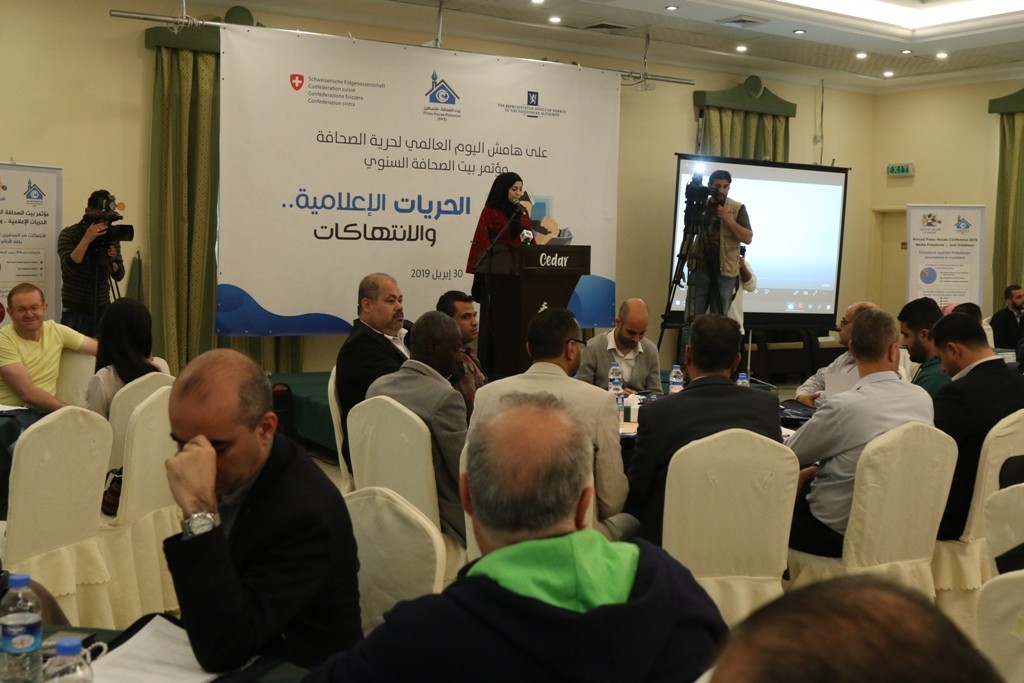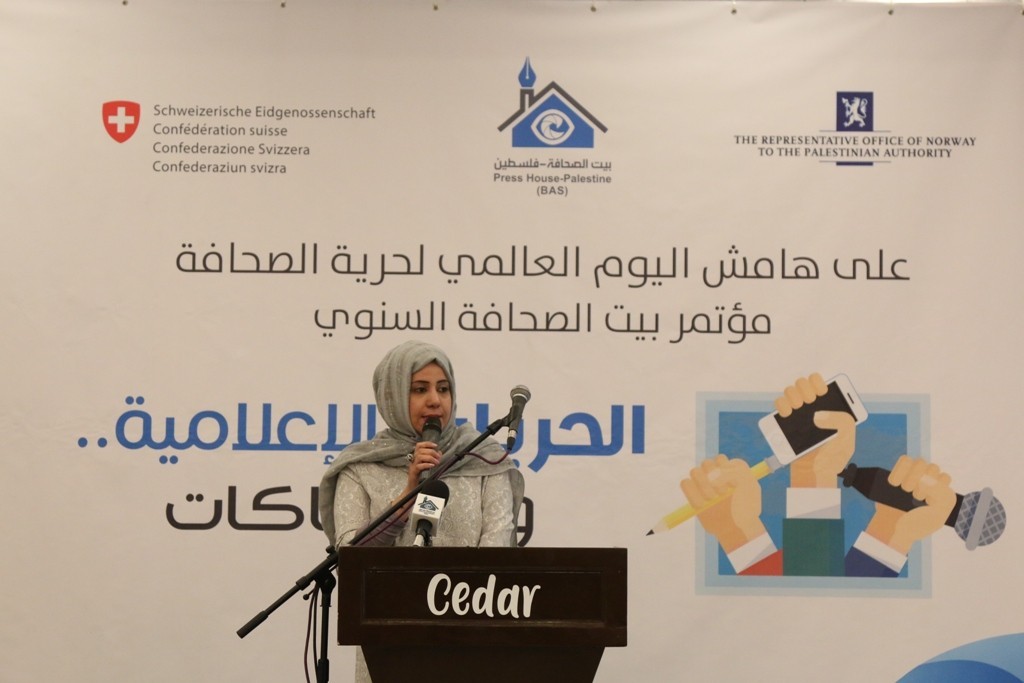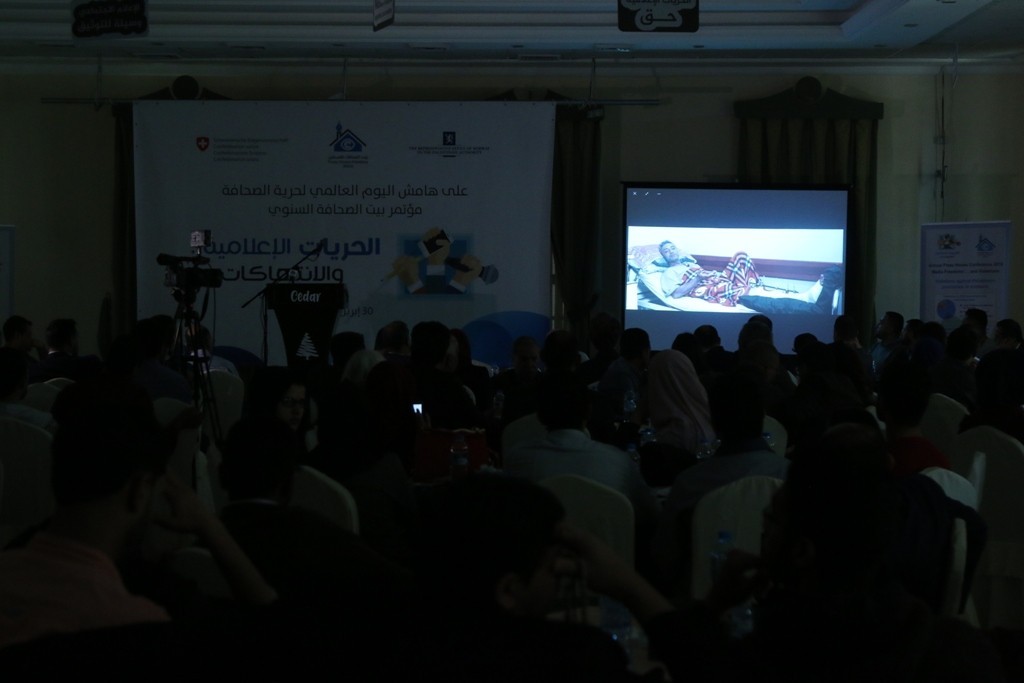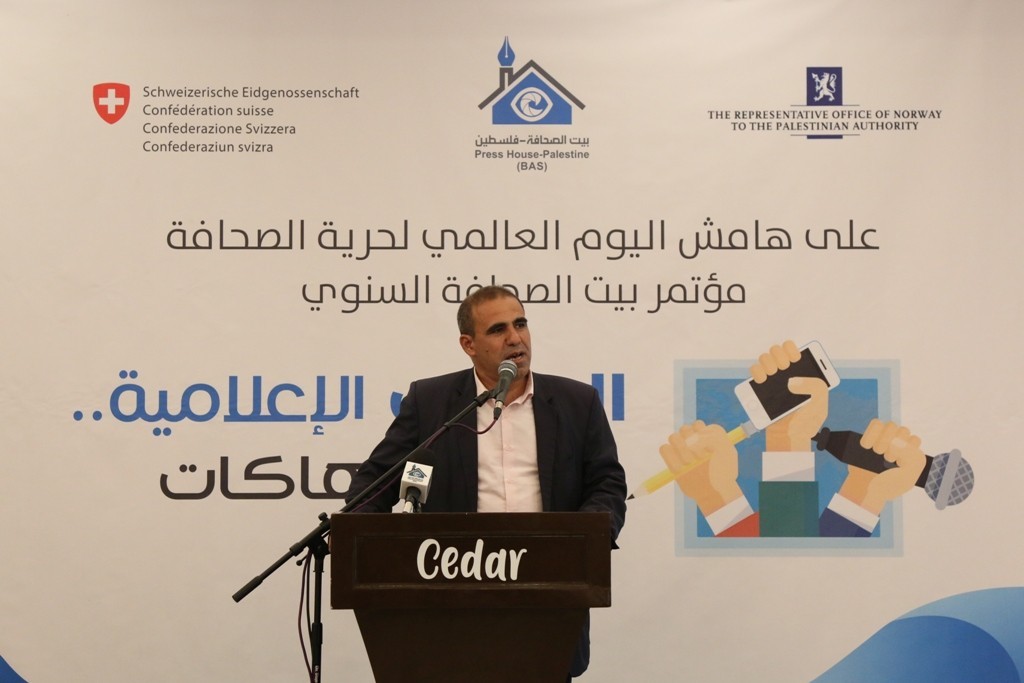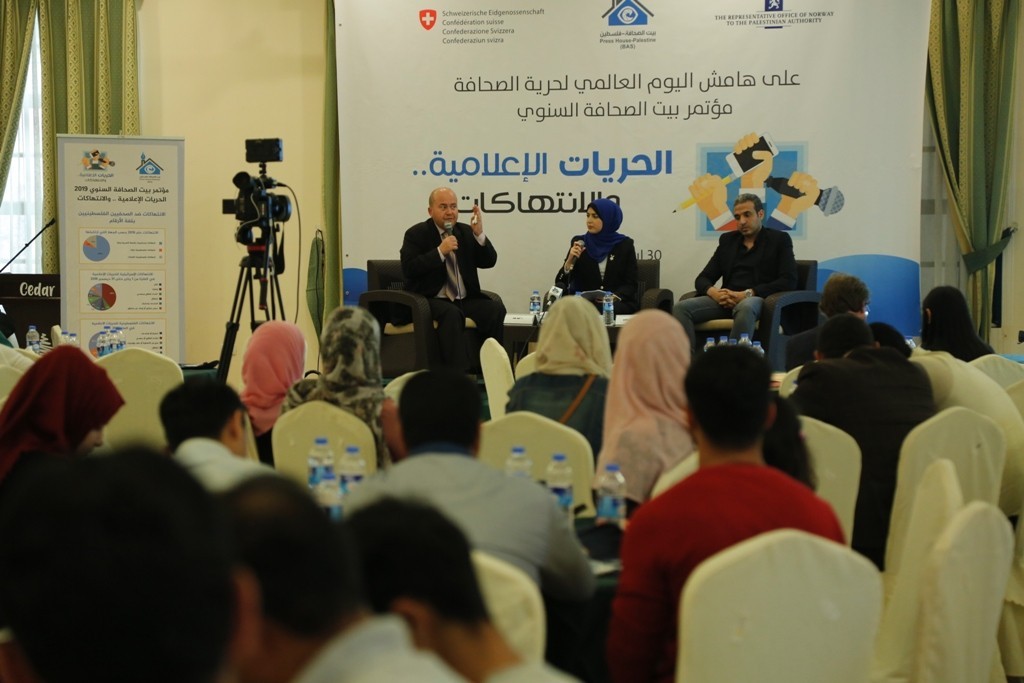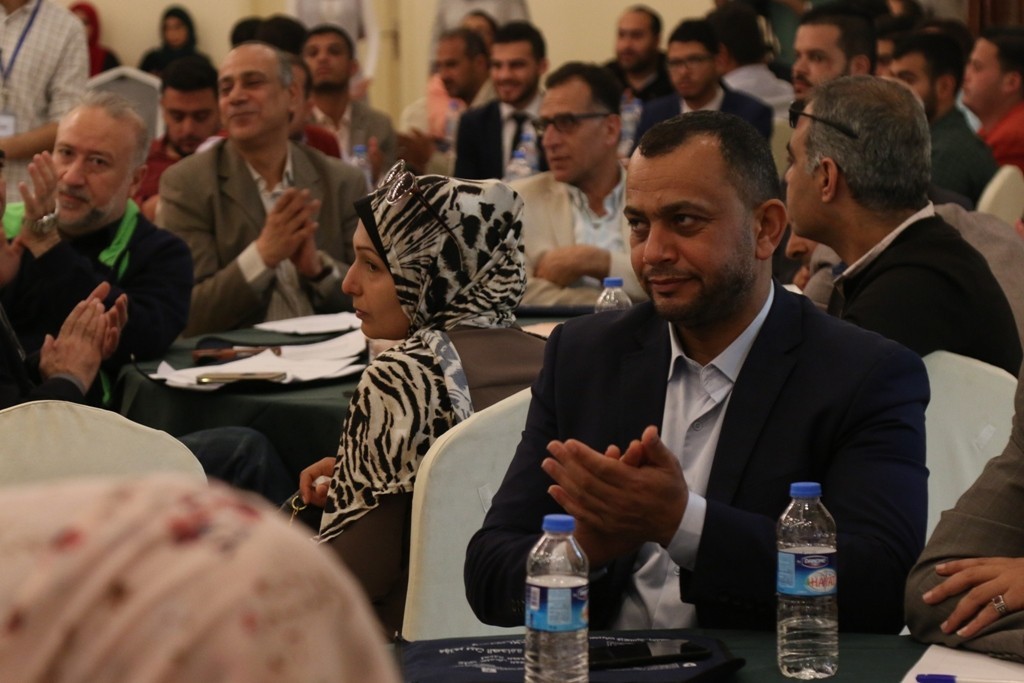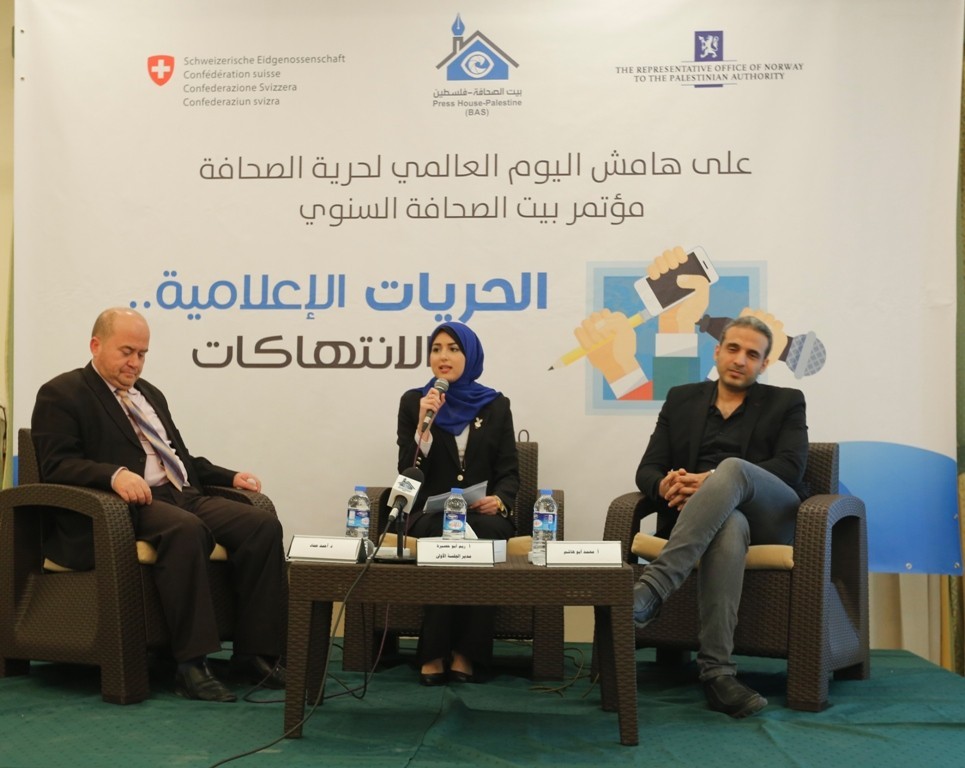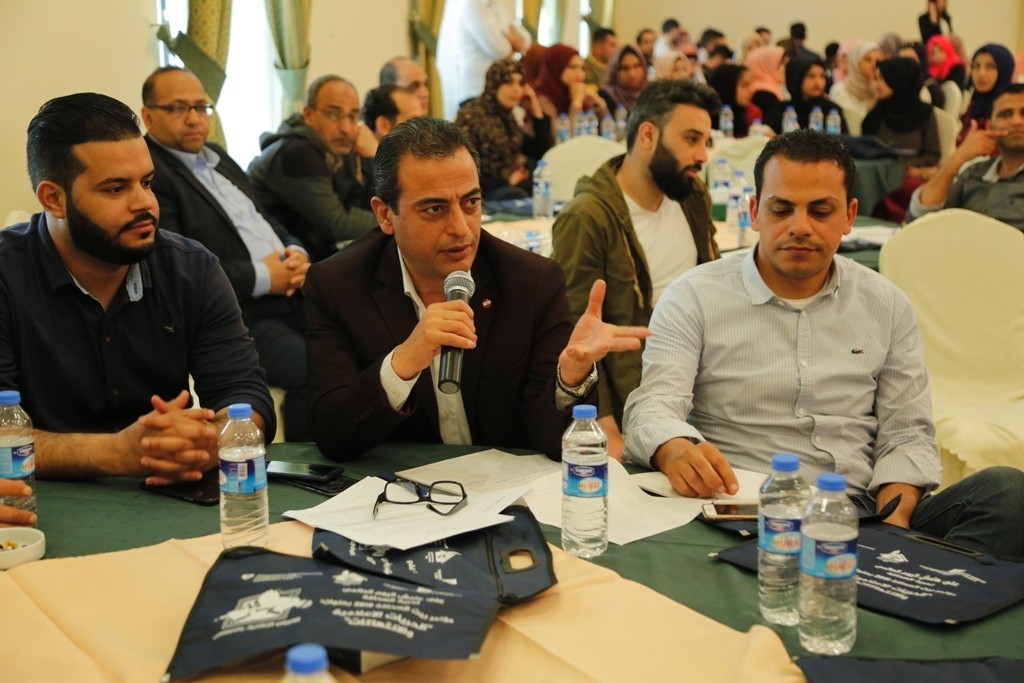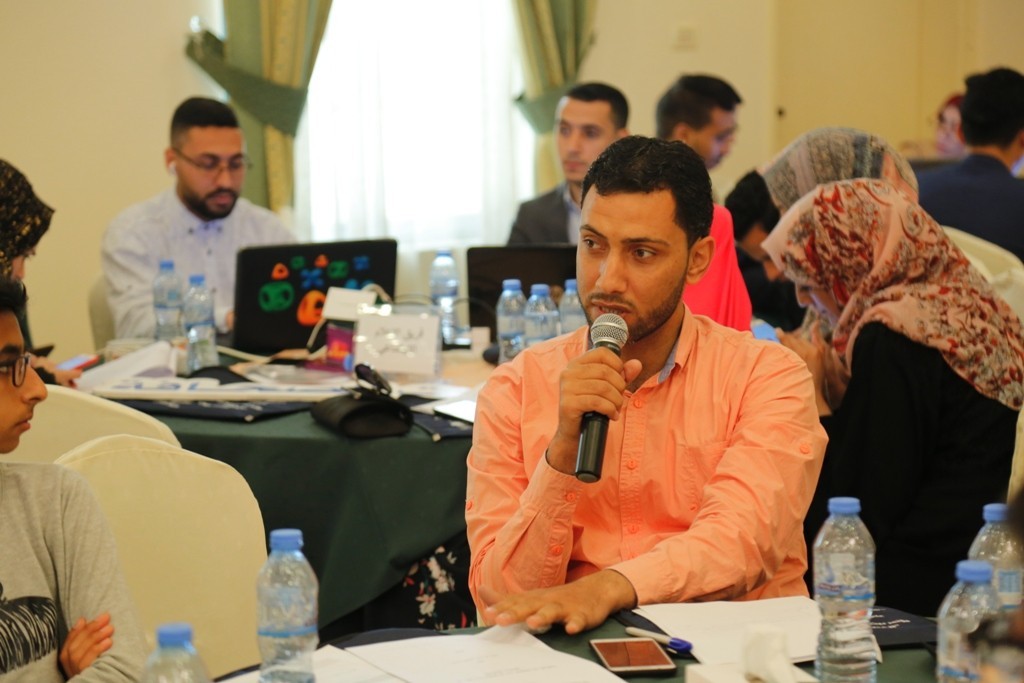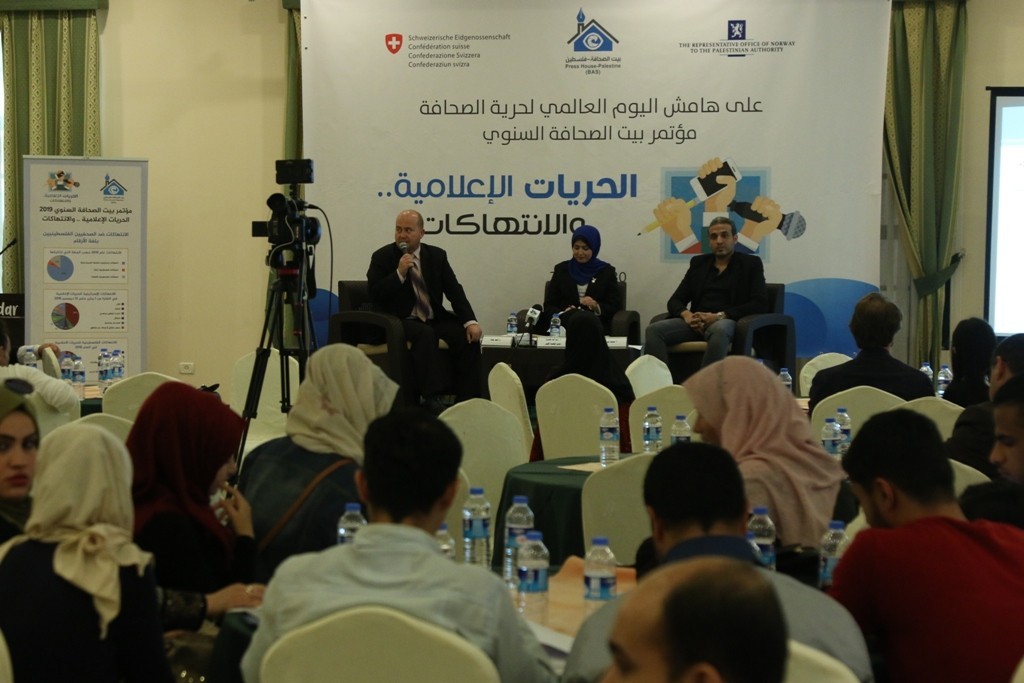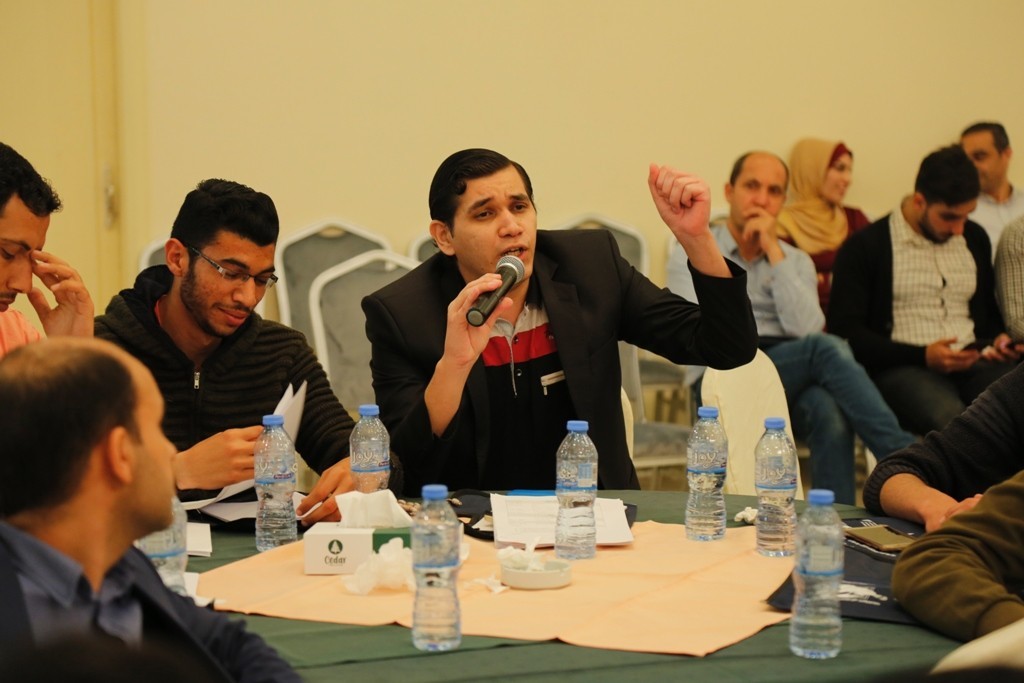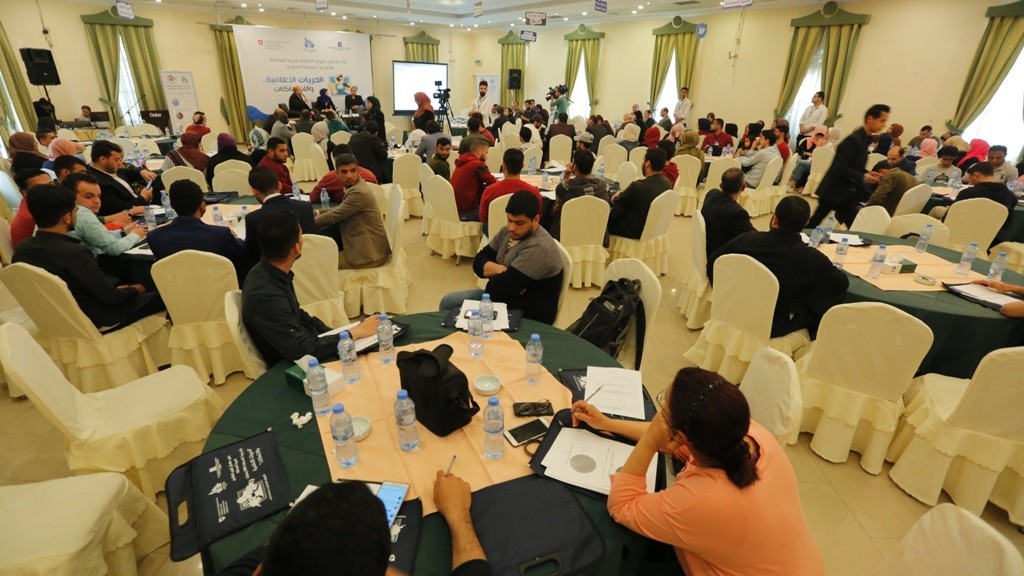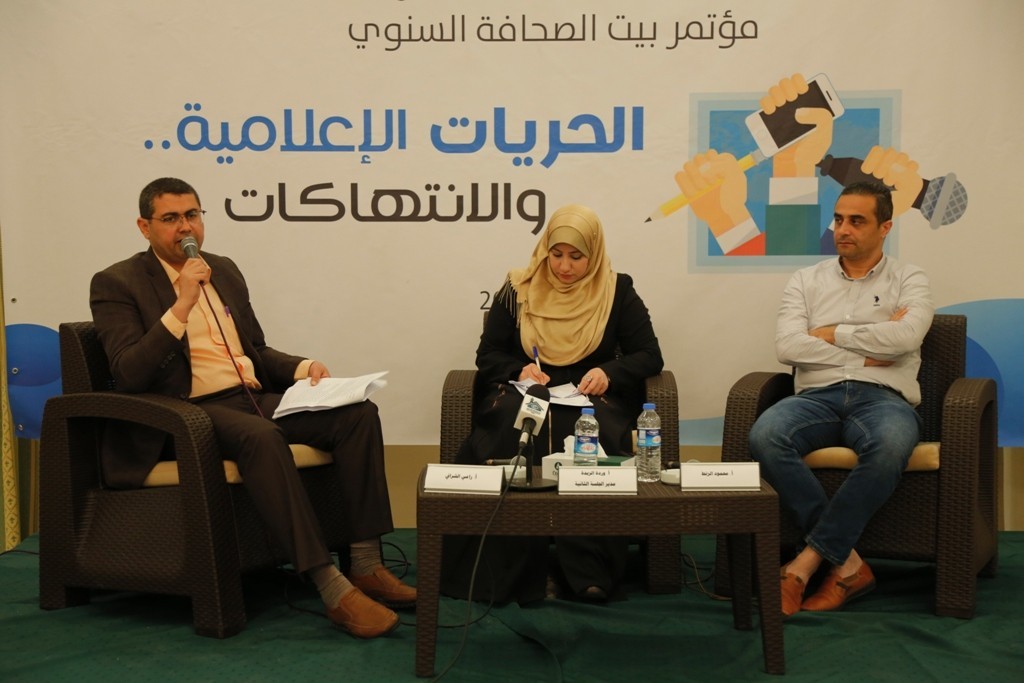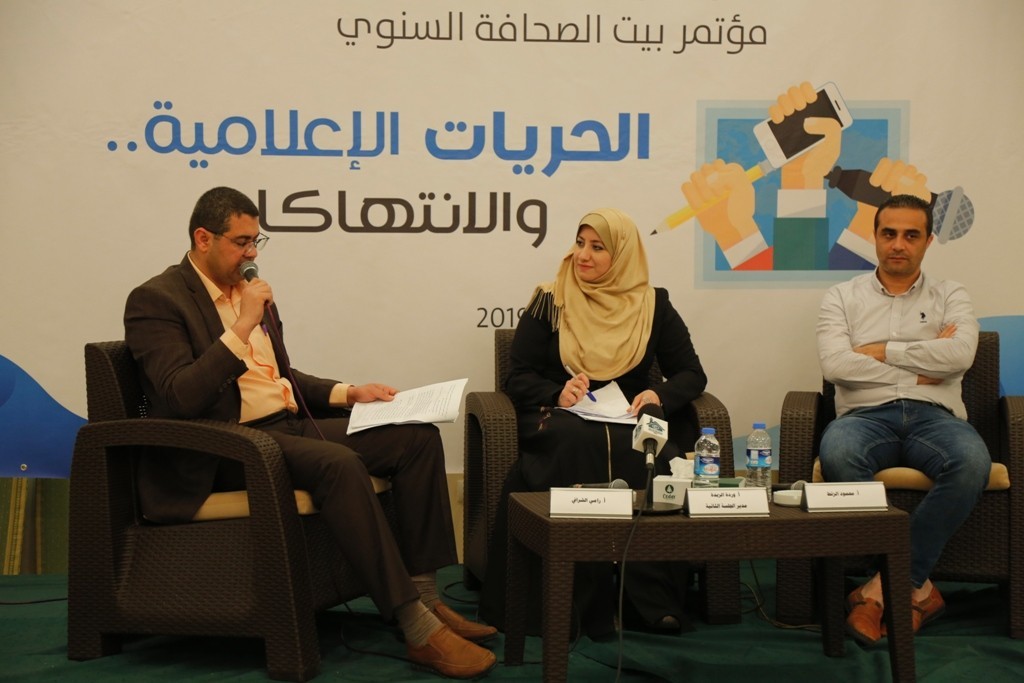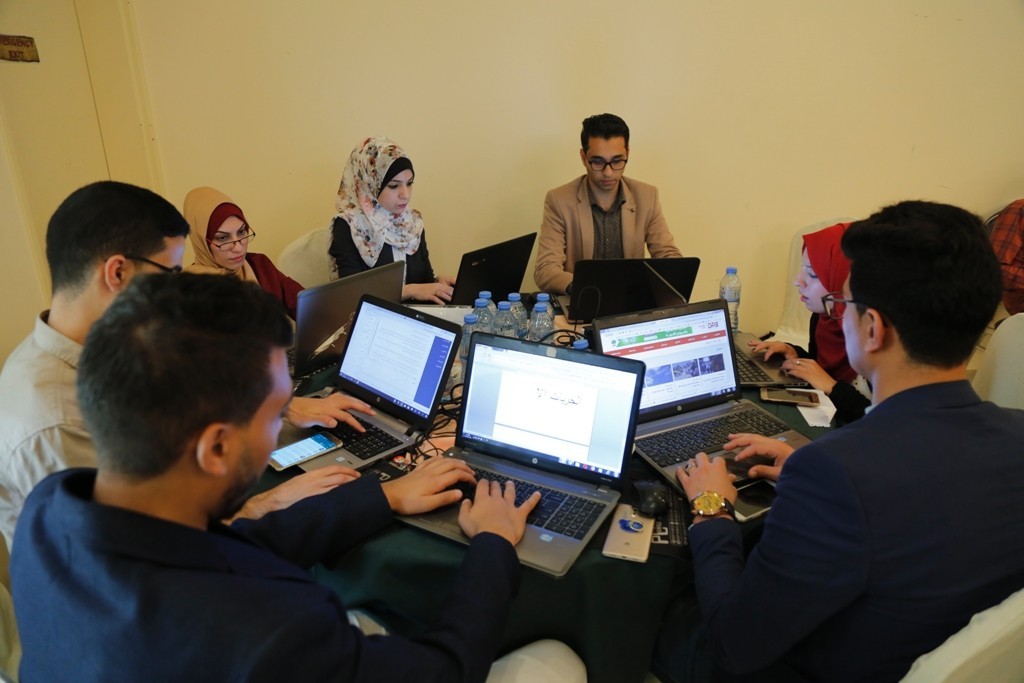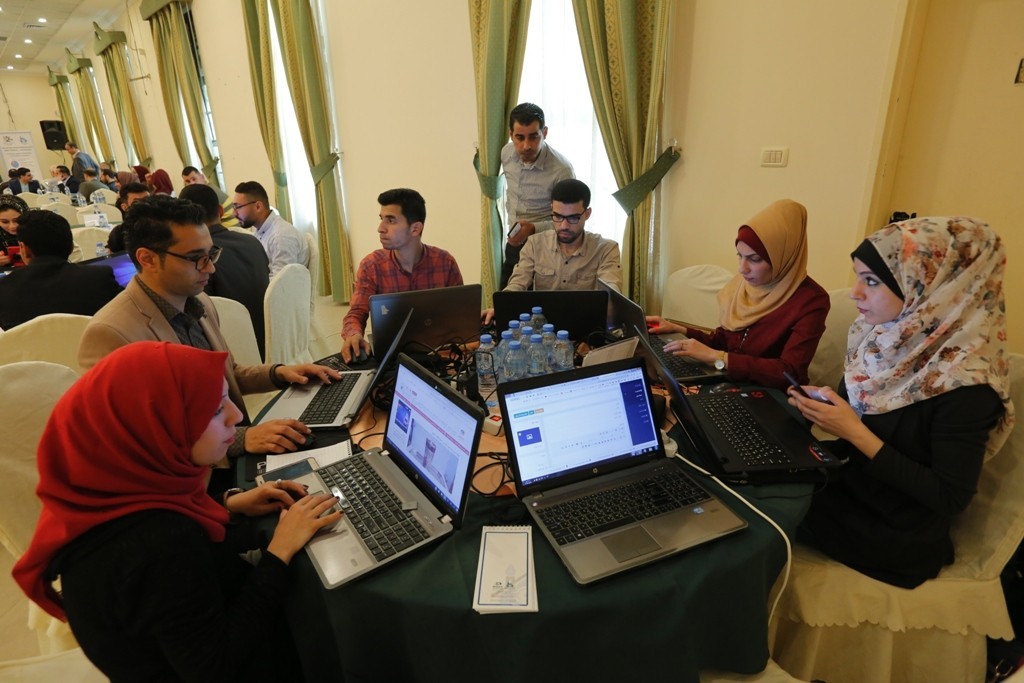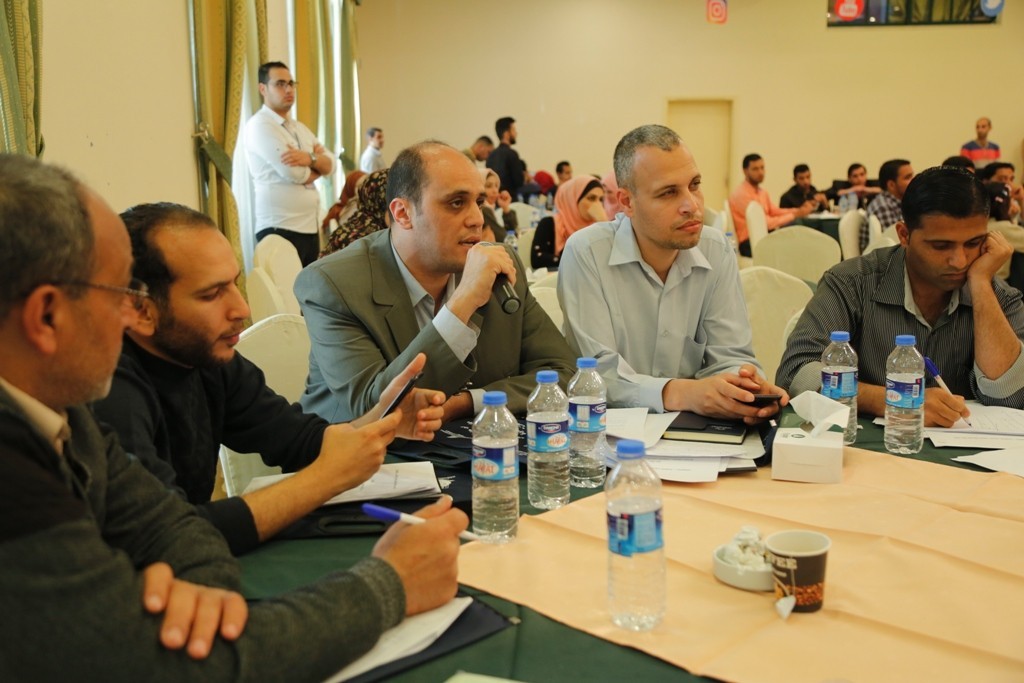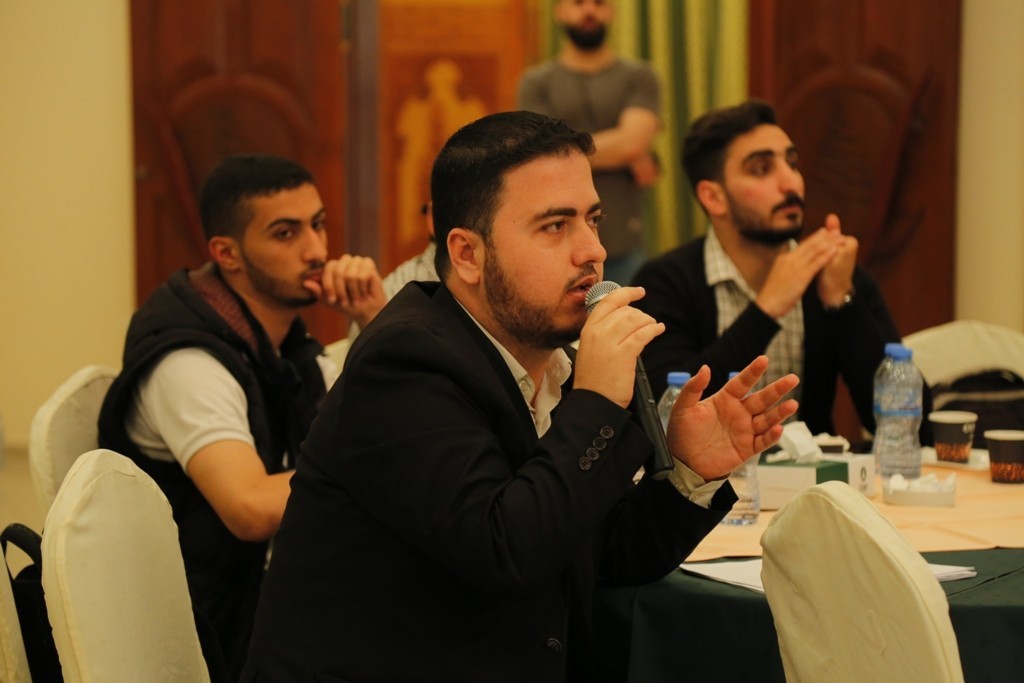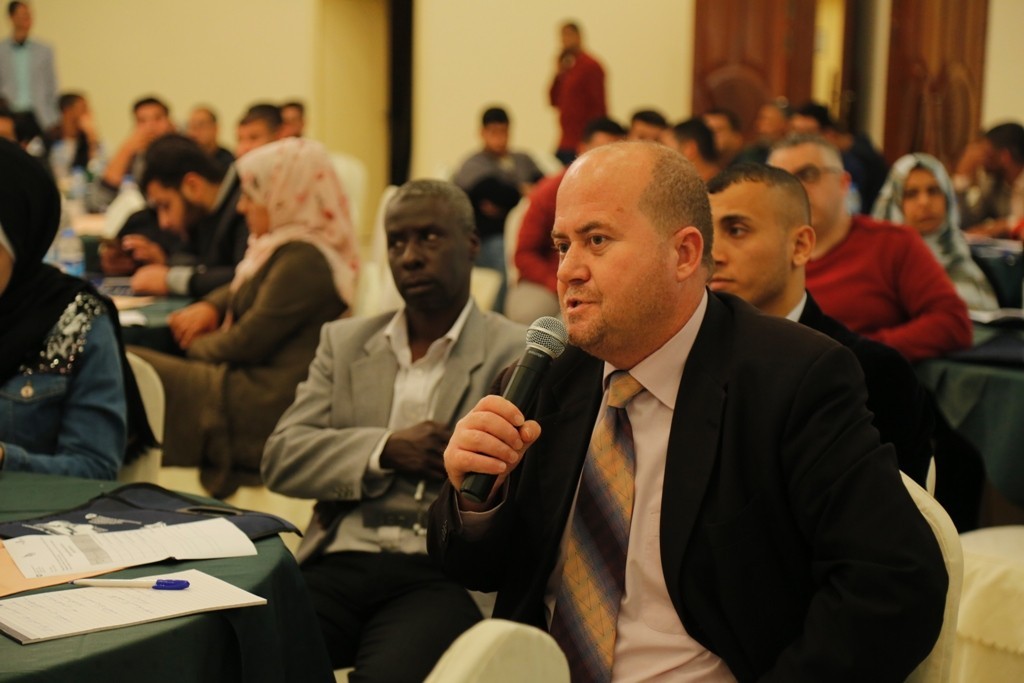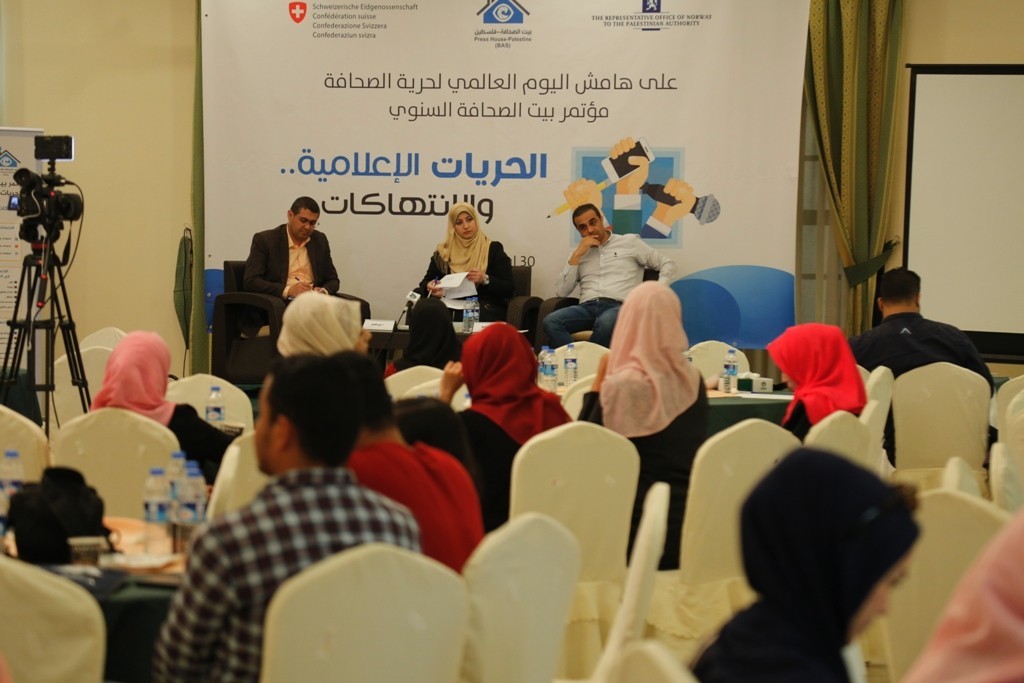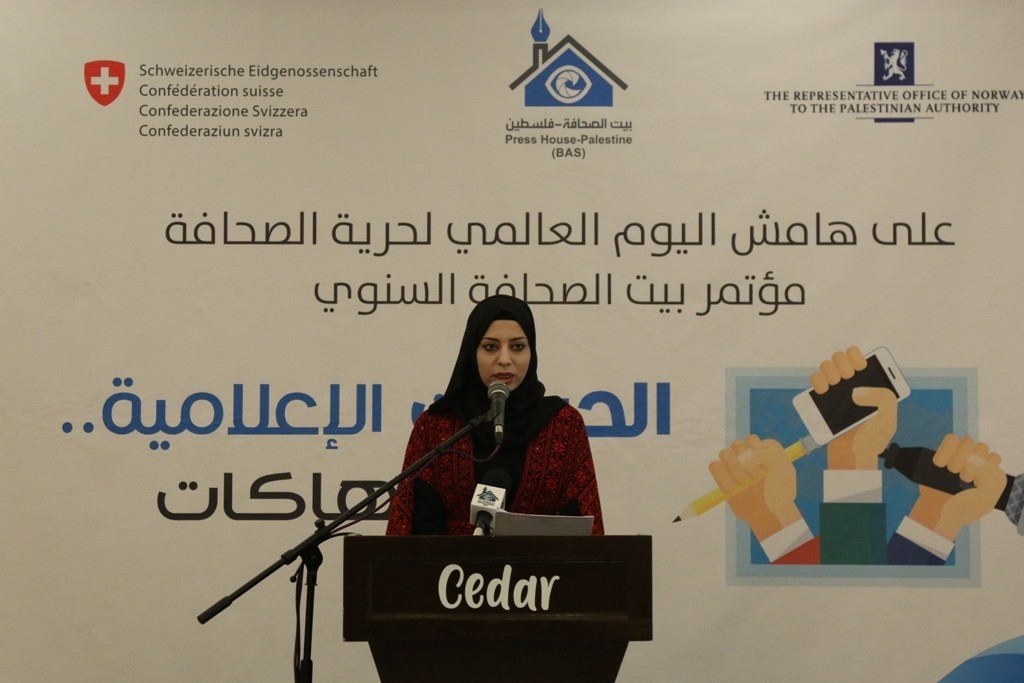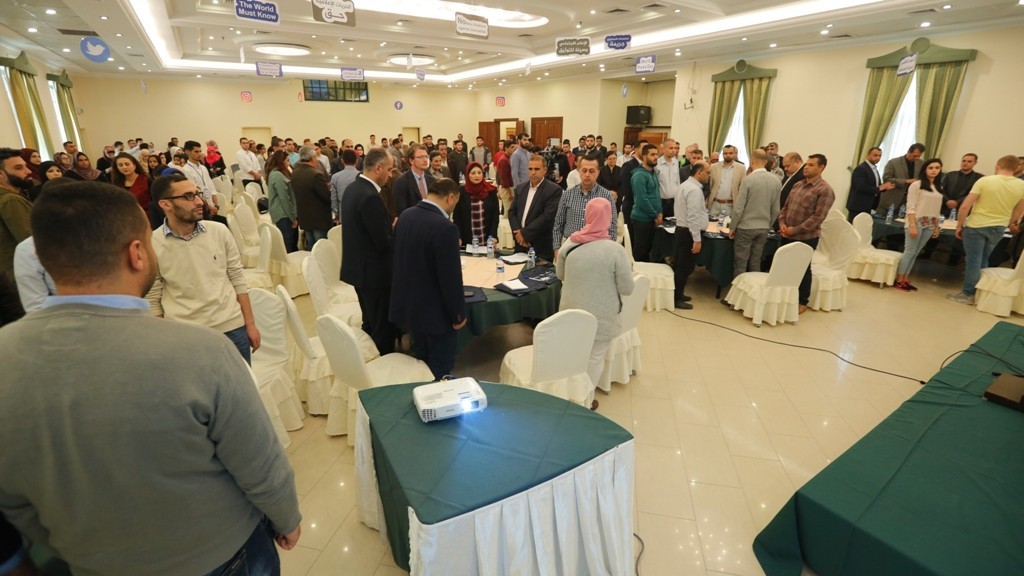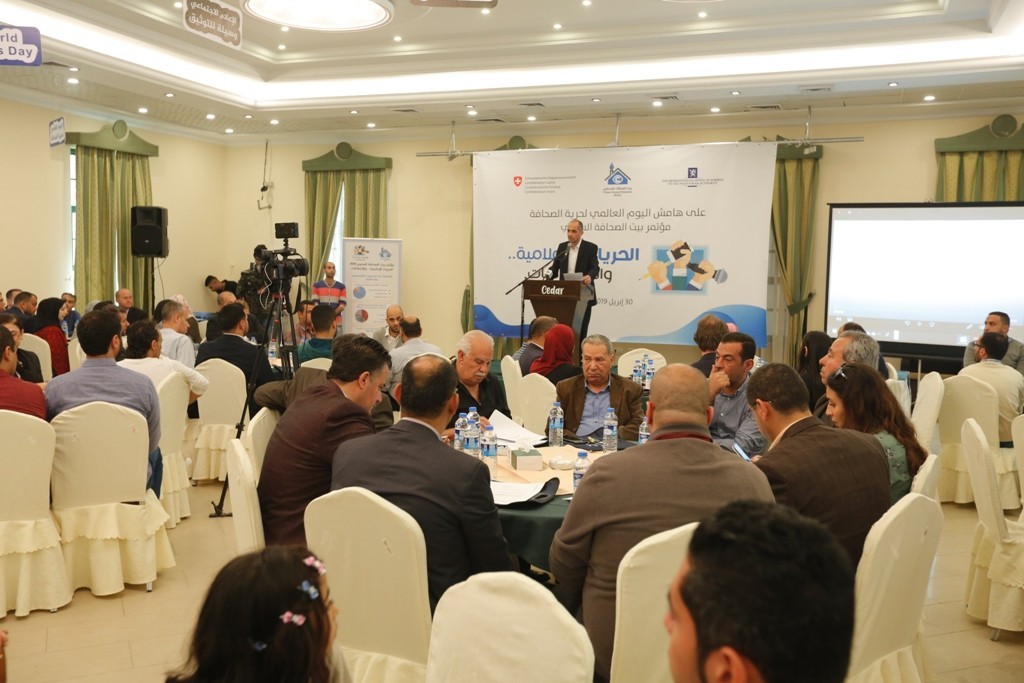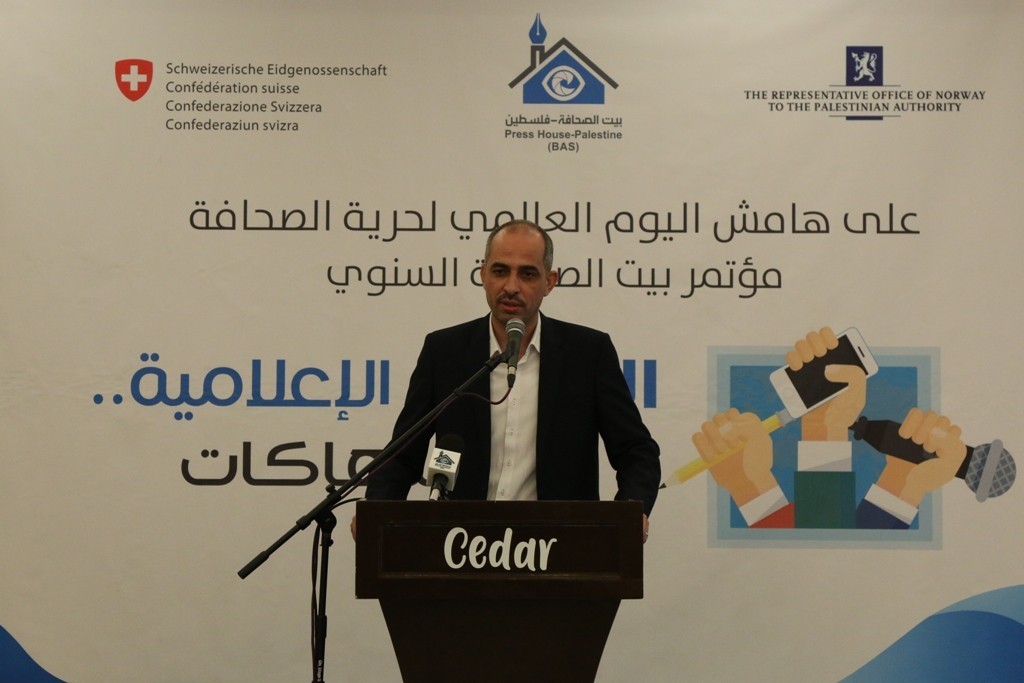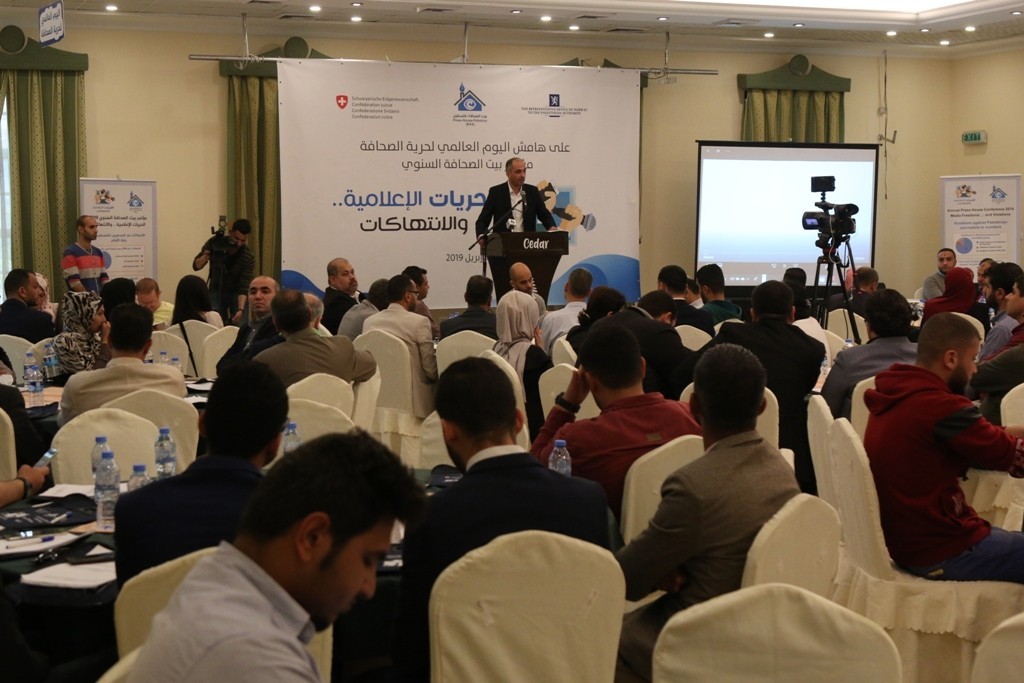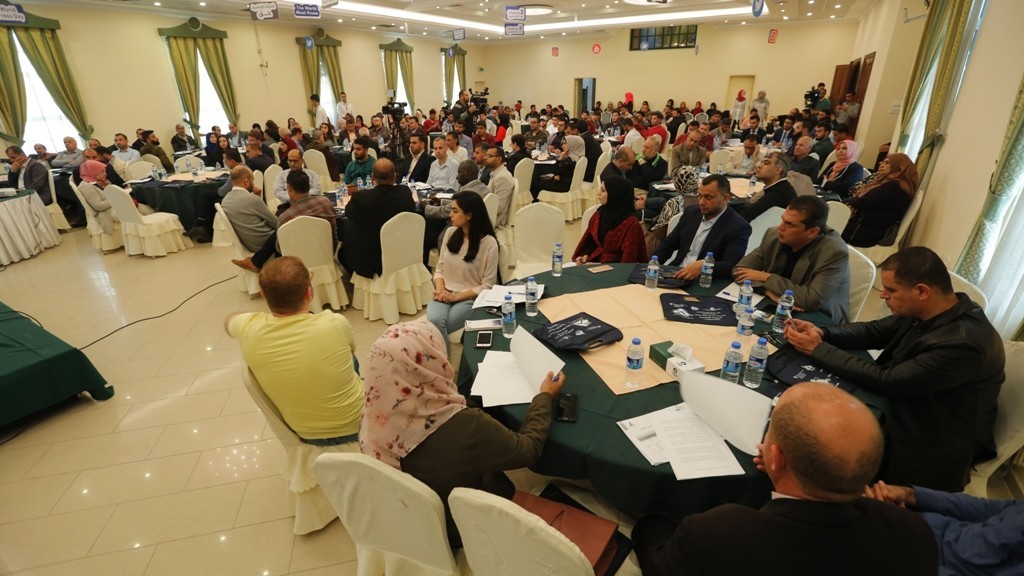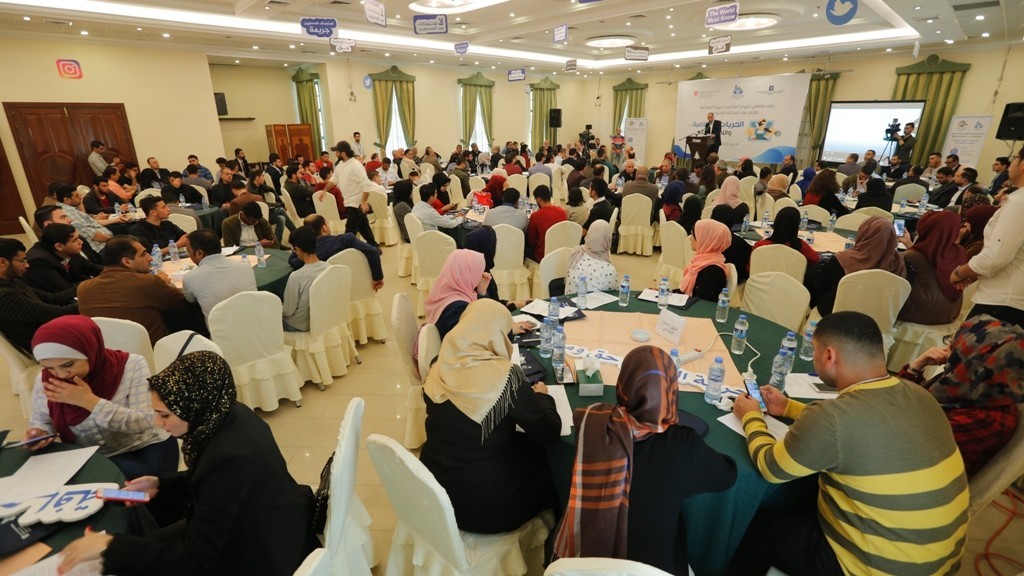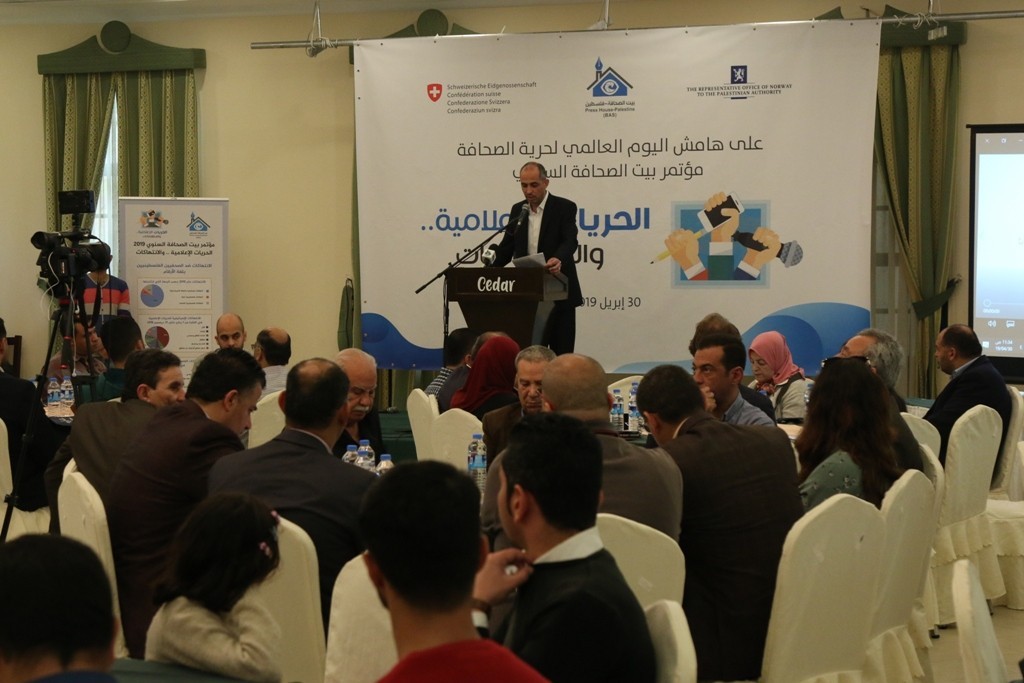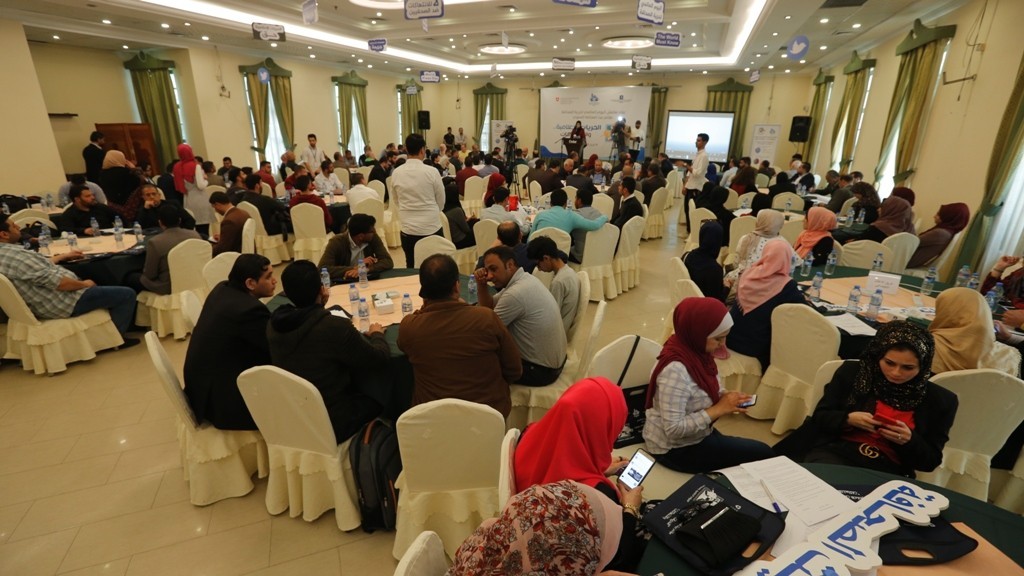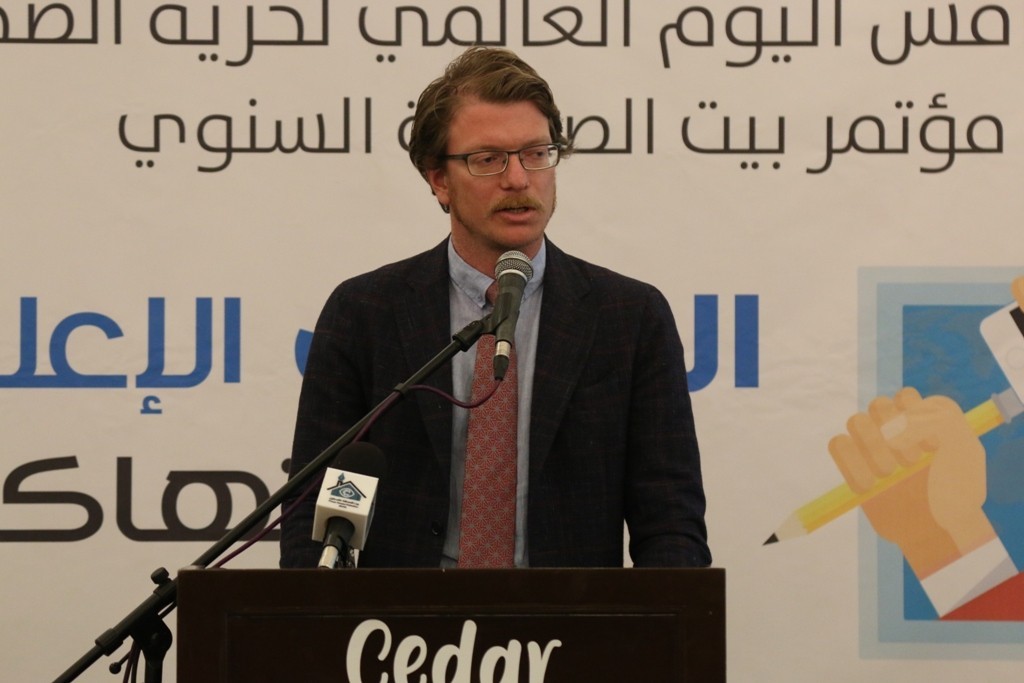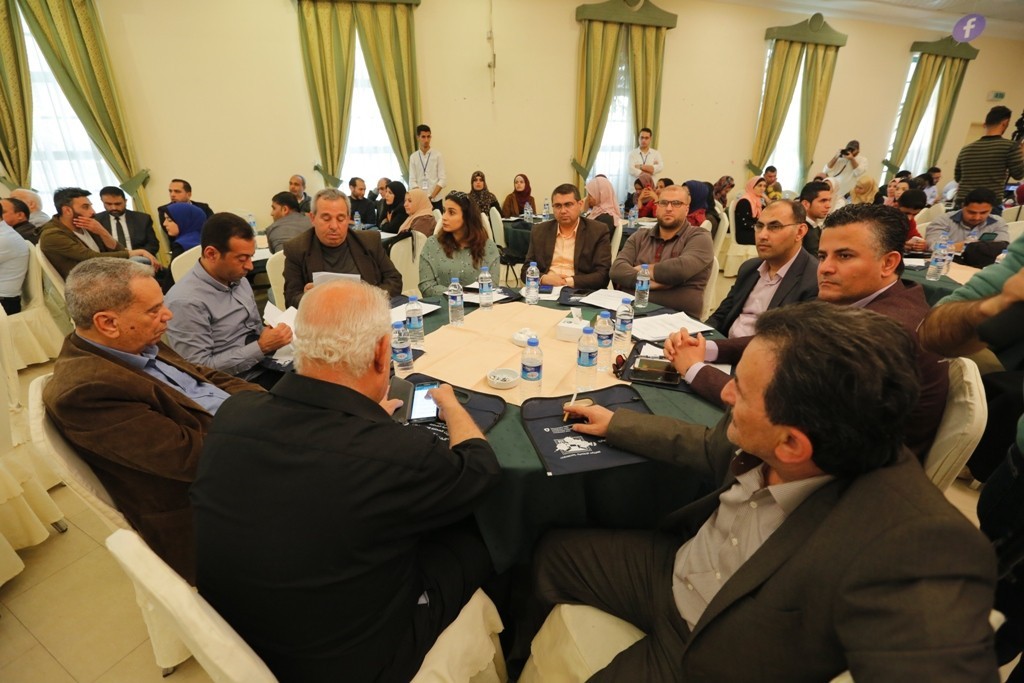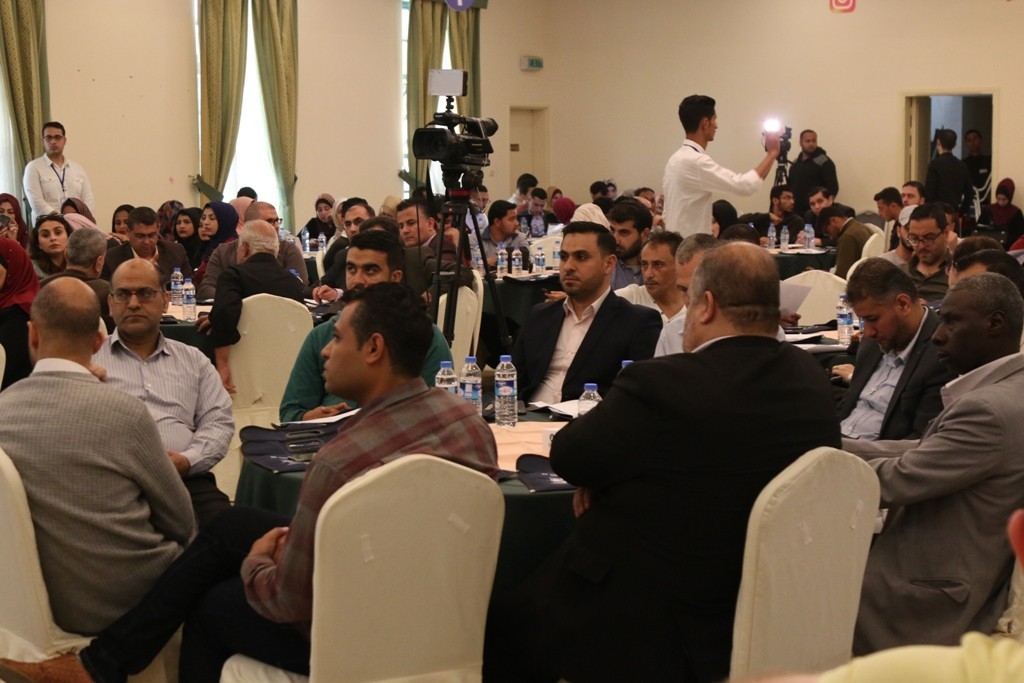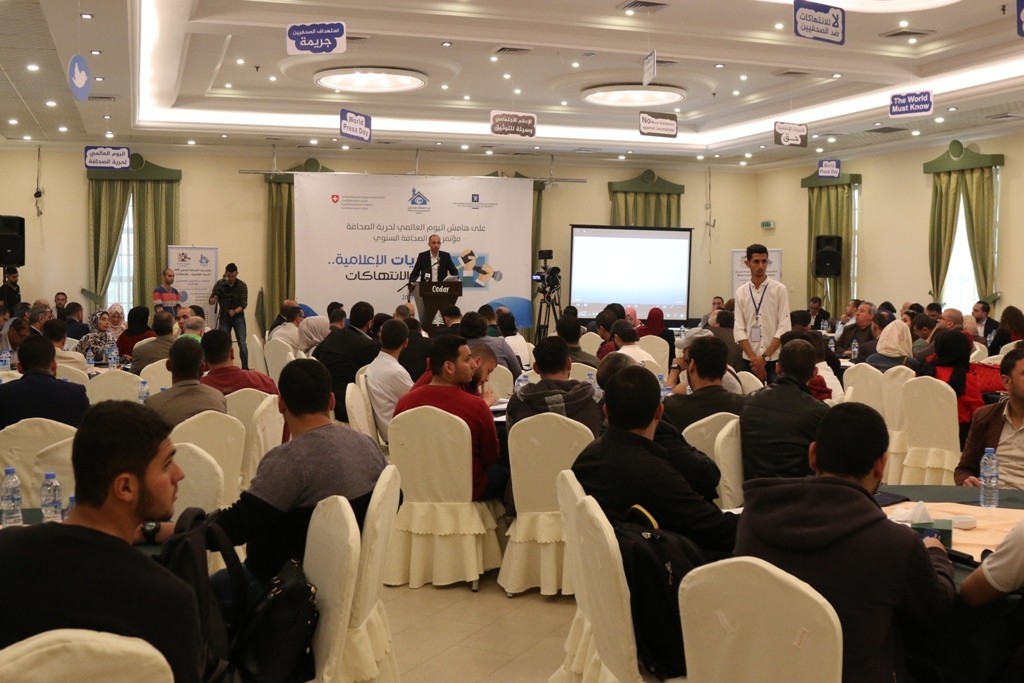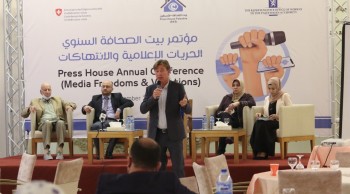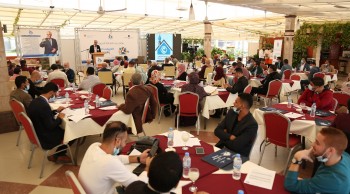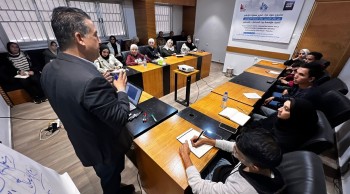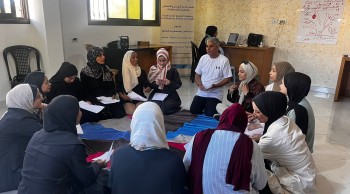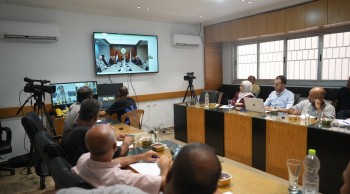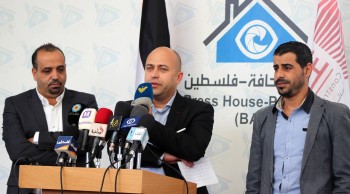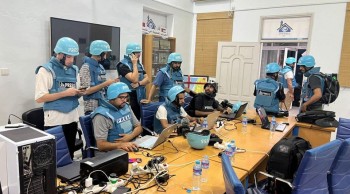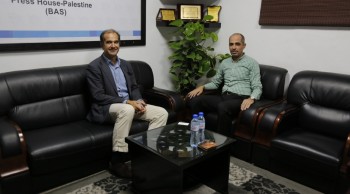On Tuesday, the Press House- Palestine held its annual conference 2019 in Gaza Strip, under the title of “Media Freedoms and Violations”, which marked the World Press Freedom Day.
The conference was attended by Bilal Jadallah , the chairman of the Press House , Sigbjorn Litland, the First Secretary of Norway Embassy, and representatives of Journalists syndicate, the Governmental Media office, Press Groups, the Ministry of the Interior, the Police , besides many other journalists and media students, in addition to media professors at Palestinian universities.
Mr. Bilal has welcomed the attendees, during his opening speech, confirming that this conference is the sequel of many previous annual conferences held by the Press House for press freedom.
He stressed the importance of the occasion of World Press Freedom Day to inform the public of violations of the right to freedom of expression, as well as a reminder of many courageous journalists who chose death and imprisonment for their journalistic work to reveal the truth.
Mr. Bilal continued that:” In Palestine this occasion is different from anywhere in the world”, explaining that these violations of the right to freedom of the press are continued to be imposed by the occupation who violates the freedom of the press and journalists, throughout its cold-blooded murder of the truth makers without accountability.
He evoked the memory of the death of the martyrs Yasser Murtaja and Ahmed Abu Hussein, who had been targeted by the occupation’s snipers last year during their work in the coverage of the return marches in the east of Gaza, despite wearing their press badges, he also referred in his speech to the closure of media institutions in the West Bank
He indicated the increased violations against the journalists and the freedom to opinion and expression both internally and in respect of the Occupation, stressing that, “ This situation puts us in a challenge requires concerted efforts to defend various media freedoms”.
Mr. Bilal also called upon media outlets to focus on the documentation of the occupation’s violations to expose its crimes to the internationally, he also demand the international community to put pressure on the occupation to stop its violations against the Palestinian press in parallel with the legal prosecution of Palestinian journalists' killers. he also call for pressuring the occupation to allow the entry of occupational safety equipment into the Gaza Strip and appeal the international institutions to provide the necessary support.
He called on the officials in the West Bank and the Gaza Strip to declare the criminalization of any assault on Palestinian journalists and provide all necessary to achieve media freedoms in practice and hold such perpetrators to account.
At the interior level, Mr. Jaddallah called for strengthening the media unit, unifying the press body, rejecting the dispute and promoting media joint efforts to defend the freedom of the press to confront violations of the Media freedom strongly.
He asked the mass of the press and the different frameworks to reactivate this gathering as it was previously before the bloc’s departure in order to work in synergy to serve the press groups work.
It’s worth to mention the urgent call for the need to open a serious and real dialogue between the Journalists syndicate and press institutions to reach an agreement that will be acceptable to all parties over all controversial issues and unite efforts to hold the elections of the Journalists Syndicate.
He urges the journalists syndicate of Palestinian to hold the elections and announce a clear date for this, so that there will be a strong and active syndicate in which everyone will participate and defend male and female journalists in the face of all violations against media freedom.
He asserted that these efforts could help defending the media freedoms more strongly, declaring that the Press House is fully prepared to provide all the necessary to launch this dialogue.
He concluded his speech by displaying the subtitles of the working papers that will be discussed by the experts and the attendees during the conference. Saying that “We hope that this conference will be ended with an important results and recommendations to move a step forward in promoting the principle of freedom of opinion and expression”.
From his part, Mr. Sigbjorn, the first Secretariat of Norway Embassy, spoke about the unique social, economic and political challenges in Palestine which are impacting the essential aspects that matter the Palestinian people. These challenges include not the basic needs such as health, education and food security but equally important; freedom of speech, transparency, integrity and free access to information, that are considered essential milestones for the development of any independent and prosperous community.
He stressed that” Norway, and our partner the Swiss government are happy to cooperate with organizations as press house who is playing an active role within unique political construct in Palestine, and in Gaza in specific.
Mr. Litland continued,” Our support to Press house aims at building the capacities of Journalists specially young new graduates , provide a hub for Journalisms in Gaza to obtain practical experiences and enhance their skills and knowledge and improve their employability. Adding that, “These interventions also include offering spaces for specialist and practitioners, during public events such as this conference, to meet and exchange their views and experiences “.
He concluded with the saying that” We believe that the work of PH is not alternative to the strategic role of the related governmental partners. PH is not competitor, or a watch dog, it is a partner who work side by side with the authorities for the best interest of the Palestinian community.
The First Session
Dr. Ahmed Hammad, Professor of Palestinian Media, presented his working paper by the first session, which was organized by journalist Reem Abu Hasira, entitled “The Violations Against Journalists in the Language of Numbers - Fact Paper”.
Dr. Hammad showed in numbers the violations against Palestinian journalists and media institutions committed whether at the internal level or by the occupation detail during 2018 and the first quarter of this year.
The Second Session
The second session was organized by journalist Rola Al Zibda, where Mr. Rami Al Shrafi, Member of General Secretariat of Journalists Syndicate, had presented his working paper on ”The Role of Journalists Syndicate and Media Groups, Frameworks and Institutions in Defending the Rights of Journalists”
Al Shrafi reviewed a quick glance about the Journalists Syndicate in Palestine and its objectives, and the role Journalists Syndicate, the press and media institutions in defending journalists in the internal violations and the occupations terms.
From its part, Mahmoud Al Zant- An advisor in Social Media and Advocacy, reviewed the role of Social Media in Monitoring Violations… Recommendations and Advices”, before opening the discussion among the attendees.
He explained the importance of social media role in monitoring and reporting violations against journalists whether in Palestine or in the abroad, showing that the activist’s reality and their behavior on the social networking and its importance to the enhancement of the role of these tools.
The Conference Recommendations
several recommendations came at the ending of the conference as follows:
- Working hard to end the Palestinian division as a first step in the unification of the of press and media institutions.
- Working to stop violations against journalists and press institutions through the unity of the Palestinian press body on a professional basis, and to monitor, report and expose violations.
- Inviting the Human Rights Council to form a fact-finding committee on Israeli violations against media institutions and journalists.
- Promoting freedoms and respect for the law, and the need for law enforcement officials to respect human rights and public and private freedoms guaranteed by international agreements and domestic legislation.
- The need to stop arbitrary arrests, due to views or political background, in order to respect the legal limits and human rights.
- Making efforts to unify the role of the union body representing all Palestinian journalists in Gaza and the West Bank, including Jerusalem and abroad.
- Making further efforts to ensure that media is obtained in an easy, immediate, effective and practical manner and enact legislation to ensure the free access of the individual to media.
- Provide legal assistance to journalists and launch lobbying and advocacy campaigns to contribute to the promotion of press freedom.
- Providing advice to journalists regarding the problems they face with the authorities to familiarize them with the limits of freedom of opinion and expression in the applicable Palestinian laws.
- Involving civil society in all decisions and policies related to press freedom; Provide all information on the reality of press freedom.
- Producing periodic reports on violations committed by official bodies and the results of such follow-up, or to have mechanisms for complaint s in case of any violation occurred.
- Stopping all campaigns of defamation against human rights institutions, which contribute to preventing of some journalists to ask for help or to submit complaints, which could create a hostile environment between public servants and human rights institutions.
- Making efforts to unify the role of the union body representing all Palestinian journalists in Gaza and the West Bank, including Jerusalem and abroad.
- This unification can be achieved if the national interest is preferred over the party and person interests.
- Organizing a Palestinian media strategy to confront the Israeli media.
- The prosecution of the Israeli occupation for its crimes in the International Criminal Court.
- Activation of laws and legislations related to press and media work and protection of journalists.
- Introducing new media legislation, such as the Law on Access to Information, which keeps abreast of developments in the media field.
- Providing capacity building programs for new media activists and youth as a challenge to enhance skills effectively of using these networks in monitoring and reporting violations.
- Digitizing work tools in civil society institutions, especially human rights institutions, to ensure upgrading its tools to save time and money and time.
- Providing capacity building programs on freedom of opinion and expression and digital issues to ensure increased knowledge of activists and actors in the civil society.
- Enabling local groups of human rights activists to monitor and report violations through digital tools.
- Lobbying for improvement of the Palestinian legal system restricting the freedom of movement of media activists by using the new media, especially the Electronic Crimes Law.
- Updating networks and media institutions tools and move to social media to keep up with the development of the world of media and to observe today’s requirements.
